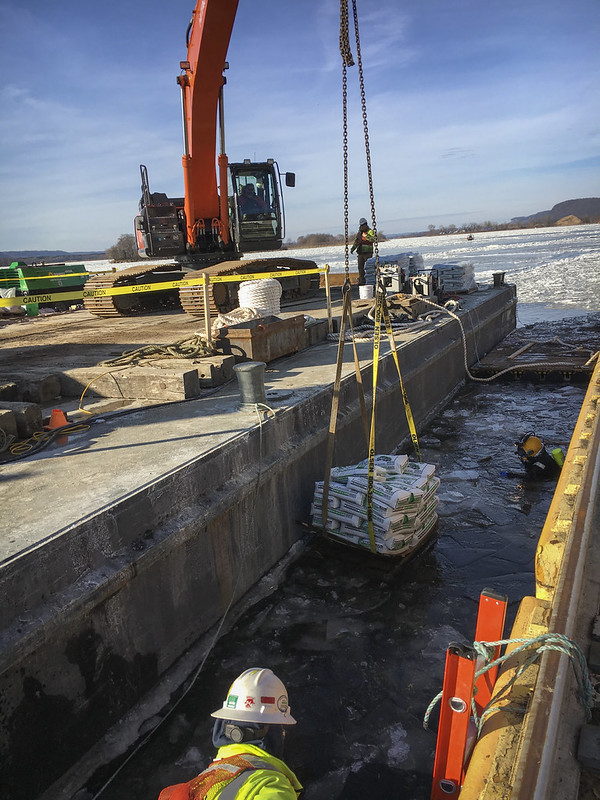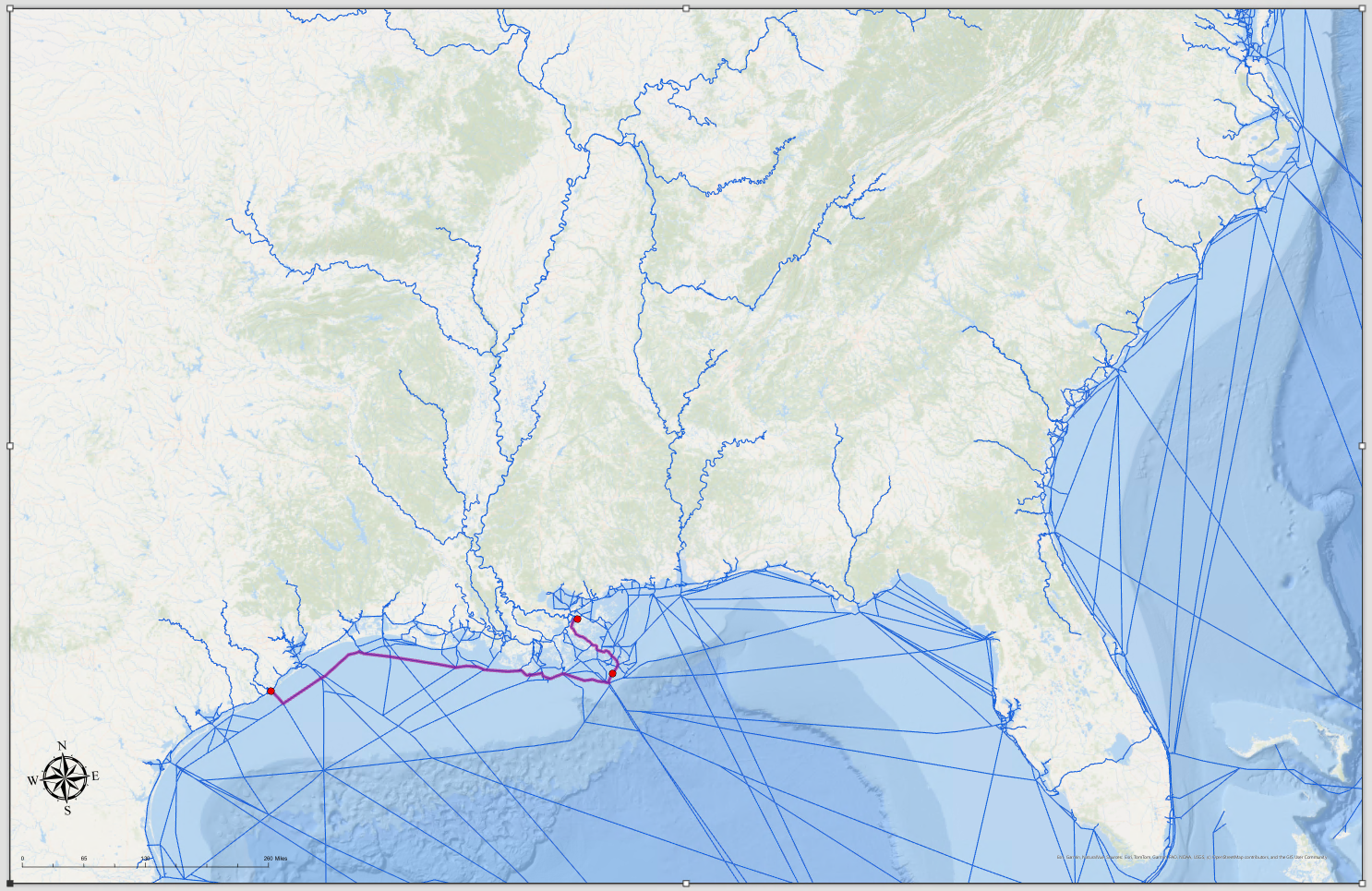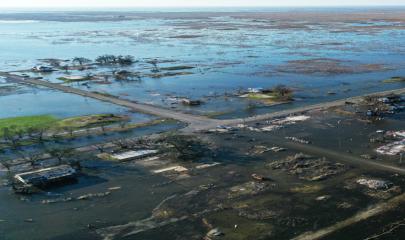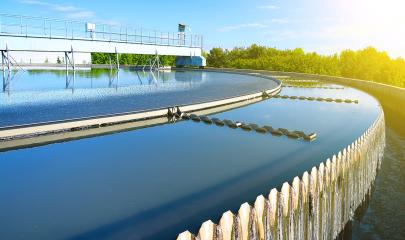Modernizing America’s Waterborne Commerce Intelligence
Challenge: Meet growing demands in maritime cargo navigation


Every day, millions of tons of cargo flow through America’s ports and waterways. Behind that steady movement is a complex web of data and one key agency tracking it all. For decades, the Waterborne Commerce Statistics Center (WCSC), part of the U.S. Army Corps of Engineers (USACE), has powered decisions that keep goods moving, infrastructure functioning, harbors dredged, and maritime policy informed by shipping patterns and on-the-ground conditions.
Today’s navigation landscape is shaped by globalized trade, environmental and security risks, and increasingly complex data streams. WCSC is advancing its Transportation Operations and Waterborne Statistics (TOWS) system to meet evolving mission demands. This modernization effort means integrating automation, cloud-based data management, and AI readiness to keep U.S. navigation intelligence accurate, timely, and actionable.
Approach: Build a modern, AI-ready foundation
Working side by side with USACE, Abt enhanced the TOWS system with targeted upgrades that improve data accuracy, security, and performance. The work included:
- Cloud migration to enable secure, scalable access to essential navigation data.
- Automated data ingestion and intelligent validation tools to streamline processing of millions of vessel and dock records.
- Data engineering and geospatial integration to improve how data moves between applications and analytical tools, enabling faster and more reliable reporting.
- Enhanced analytic and visualization capabilities to simplify how users interpret national commerce data.
- AI/ML enhancement assessment to identify where automation and machine learning can provide meaningful operational value, reduce manual burden, and improve reporting accuracy.
Abt’s team combined strong technical expertise with deep familiarity with TOWS systems and USACE’s mission priorities. That meant we could identify and implement changes that matter, avoiding bells and whistles in favor of resilient, mission-aligned improvements.
Result: Streamlined operations, smarter decisions


So far, the effort has delivered clear, measurable results:
- Streamlined 17 enterprise applications and tools into a modernized system for TOWS that enhances operational efficiency, security, and performance.
- Enhanced data accuracy and completeness through geospatial routing models—enabling more accurate vessel path mapping from origin to dock for 10 million vessel trips processed annually .
- Improved efficiency and data quality for the 10 billion tons of cargo tracked in the Waterborne Commerce of the United States (WCUS) report—the nation’s flagship source of navigation data.
- Advanced analytic and visualization tools that support faster, data-driven decision-making across the maritime community.
- A solid technical foundation for scaling AI-driven functions.


What this means for USACE—and the nation
Through this work, USACE is positioned to make faster, smarter decisions that keep goods—and the economy—moving. By investing in the right technical upgrades at the right time, the Corps can better respond to changing demands and support the safe, efficient operation of America’s ports and waterways.
Ready to modernize your mission-critical data systems?
Abt brings the technical expertise and deep domain knowledge needed to turn complex data challenges into actionable intelligence. Let’s talk about how we can help you prepare your systems for what’s next.
Let's Connect.
Read More
Environment & Energy in the United States

Abt Forward: November 2025 Newsletter
Abt Forward: Military Families, AI Leapfrogs, Mission Impact. Explore military family resilience, AI innovations, and community impact.

Multi-site study of communities with PFAS-contaminated drinking water: Methods, demographics, and PFAS serum concentrations
Presents findings from a multi-site study examining the relationship between PFAS-contaminated drinking water and PFAS levels in residents’ blood across the U.S.

Coastal Resilience Powered by Open Data and Modern Tools
For the Department of the Interior, streamlined data access and user-friendly tools that strengthen coastal protection, marine minerals access, and environmental resilience.

Addressing Cumulative Air Pollution in Massachusetts
Supporting Massachusetts in developing cumulative impact analysis and protective air permitting tools.

Shelter from the Storm: Addressing the Dual Crisis of Extreme Weather and Homelessness
Homeless response systems need support to strengthen their resilience to extreme weather shocks and the disproportionate harm that extreme weather has on people experiencing homelessness.

How to Tackle Contaminants and Make Drinking Water Safer
Abt’s expertise with PFAS, lead, and perchlorate enables us to assess health risks, technology effectiveness, and health benefits of water treatment options.

79th Session of the UN General Assembly (UNGA 79) and Climate Week NYC
Abt Global will be participating in events during the 79th Session of the UN General Assembly (UNGA 79) and Climate Week NYC.

Understanding Public Perception of Extreme Heat and Health Risks
This report by CRC, Abt, and the National Weather Service profiles public perception of dangerous heat events & recommends actionable messaging.

Abt Global to Partner with U.S. Department of Interior to Facilitate Clean Energy Collaborations
Through a $65 million contract, Abt will help DOI work with a range of stakeholders to maximize investments in clean energy and infrastructure development.

2024 Society of Toxicology (SOT) Annual Meeting
Abt is a proud sponsor of the 2024 Society of Toxicology Annual Meeting.


